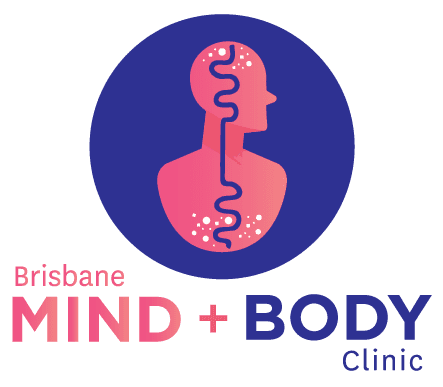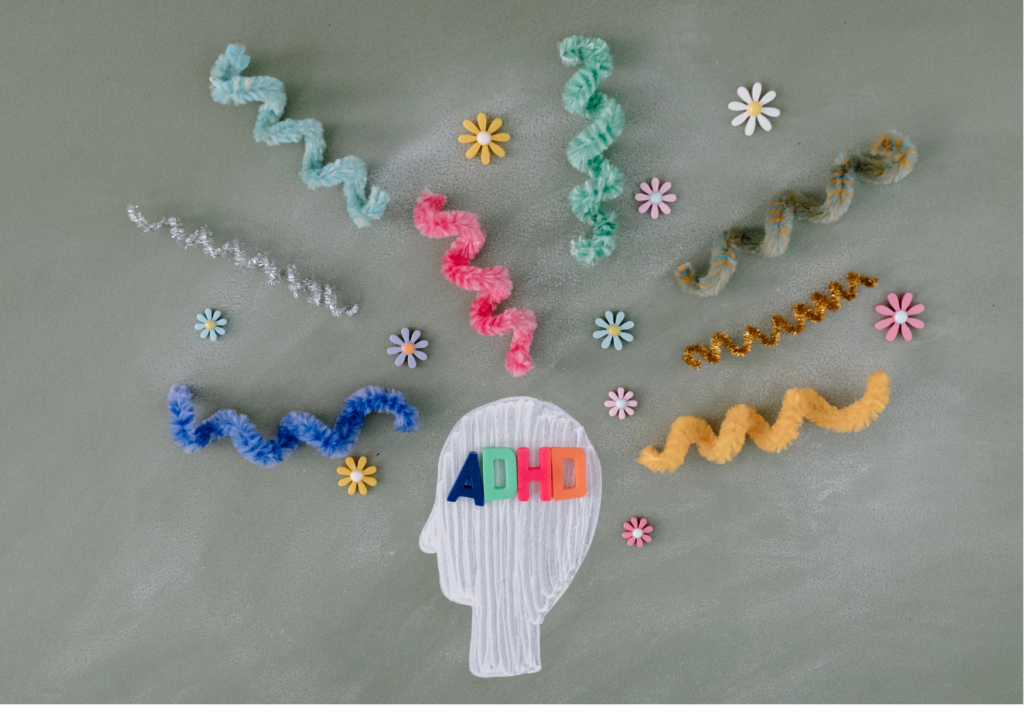Can Adults Have ADHD? What Are The Signs Of ADHD In Adults?
In today’s fast-paced world, where distractions abound and demands on our attention seem never-ending, it’s not uncommon for many of us to occasionally misplace our keys, forget an appointment, or struggle to stay focused during a lengthy meeting. These lapses in attention are often brushed off as mere moments of forgetfulness. Still, for some adults, they may be indicative of something more significant—Adult Attention Deficit Hyperactivity Disorder or ADHD.
While ADHD is commonly associated with children, it’s crucial to recognise ADHD signs in adults as this condition doesn’t always magically disappear as one reaches adulthood. Adult ADHD is a genuine and often misunderstood condition that can significantly impact an individual’s daily life, relationships, and overall well-being. The key to addressing adult ADHD lies in recognising the signs and symptoms, understanding its implications, and seeking appropriate help.
What is ADHD in Adults?
ADHD, or Attention Deficit Hyperactivity Disorder, is a neurodevelopmental disorder that primarily affects an individual’s ability to focus, control impulses, and regulate energy. While it’s often associated with children, ADHD is a condition that can persist well into adulthood, sometimes going undiagnosed for years. Understanding how ADHD can persist and impact adults is the first step in recognising its presence and importance in one’s life.

ADHD's Journey into Adulthood
ADHD is not a childhood-exclusive condition. In many cases, the symptoms that were evident in childhood continue to affect individuals as they grow into adults. However, the way these symptoms manifest can change over time.
In childhood, ADHD is often characterised by hyperactivity, impulsivity, and an inability to sit still or pay attention. These symptoms can lead to academic challenges, difficulty following instructions, and struggles in social settings. However, as individuals with ADHD transition into adulthood, hyperactivity may decrease, and the condition may present differently.
In adults, ADHD often manifests as inner restlessness, difficulty focusing on tasks, chronic forgetfulness, impulsivity, and poor time management. These symptoms can profoundly impact one’s personal and professional life, leading to relationship difficulties, work-related issues, frustration, and underachievement.
Prevalence of Adult ADHD
The prevalent symptoms and signs of adult ADHD are more common than you might think. While it’s challenging to pinpoint exact numbers due to variations in diagnosis and awareness, studies estimate that approximately 5% of adults have ADHD. However, many adults with ADHD remain undiagnosed or misdiagnosed, which means the actual number could be higher.
It’s important to note that ADHD is not limited by age, gender, or background. It affects people from all walks of life; anyone can develop symptoms at any stage.
The Importance of Early Diagnosis and Treatment:
Recognising and addressing adult ADHD is of paramount importance. Left untreated, ADHD can lead to many challenges, including difficulties at work, strained relationships, and low self-esteem. However, with early diagnosis and appropriate treatment, individuals with ADHD can learn effective coping strategies, improve their focus, and lead fulfilling lives.
Early intervention can also mitigate the potential long-term consequences of untreated ADHD, such as academic underachievement, substance abuse, and mental health issues like anxiety and depression, which can often co-occur with ADHD.
Adult ADHD Signs and Symptoms
Adult ADHD is a complex condition that can manifest in various ways, impacting different aspects of an individual’s life. Below are the common symptoms and signs of adult ADHD categorised into three primary categories: Inattention, Hyperactivity, and Impulsivity.
Inattention:
- Difficulty Concentrating: Adults with ADHD often struggle to maintain focus, especially on tasks that require sustained attention, like reading, working, or studying.
- Forgetfulness: Frequent forgetfulness is a hallmark of adult ADHD, leading to missed appointments, misplaced items, and unfinished tasks.
- Disorganisation: Adults with ADHD may have difficulty organising their thoughts, belongings, and schedules, making it challenging to meet deadlines and stay on top of responsibilities.
- Careless Mistakes: Making careless errors in work or overlooking details is common for individuals with adult ADHD.
- Difficulty Following Directions: Following multi-step instructions or staying on track with a set of tasks can be a significant challenge.
- Poor Time Management: Individuals with ADHD often struggle with time awareness, leading to chronic lateness and difficulty estimating how long tasks will take.
Hyperactivity:
- Restlessness: While hyperactivity may lessen in adulthood, adults with ADHD often experience inner restlessness, making it hard to relax or sit still.
- Impulsive Speech: Speaking without thinking is a common trait, leading to yelling out comments or interrupting others in conversations.
- Fidgeting: Engaging in repetitive movements like tapping, drumming fingers, or foot tapping can be a way to cope with excess energy.
Impulsivity:
- Impulsive Decision-Making: Adults with ADHD may struggle with impulsive decision-making, often acting on immediate desires without considering long-term consequences.
- Risk-Taking Behavior: Engaging in risky activities such as reckless driving, substance abuse, or impulsive spending can manifest impulsivity in adults with ADHD.
- Difficulty Waiting: Waiting in line, for a turn, or in traffic can be highly frustrating for adults with ADHD due to impatience.
- Interrupting Others: Impulsivity may lead to interrupting conversations, which can strain relationships.
- Emotional Dysregulation: Mood swings and emotional outbursts are more common in adults with ADHD, especially when stressed or overwhelmed.
- Procrastination: Putting off tasks until the last minute due to difficulty starting or maintaining focus is a typical symptom.
- Chronic Disorganisation: Disorganisation in personal spaces, work environments, and daily routines can be recurring.
It’s important to note that not everyone with adult ADHD will experience all of these symptoms, and the severity can vary from person to person. Additionally, these symptoms alone don’t necessarily indicate ADHD; a formal diagnosis by a healthcare professional is essential for accurate assessment and appropriate treatment.
Brisbane Mind and Body Clinic is a trusted resource for those seeking guidance and support. With their team of experienced healthcare professionals and specialists, they offer comprehensive assessments, accurate diagnoses, and personalised treatment plans designed to address the specific challenges faced by adults with ADHD. Their holistic approach considers the medical aspect and their patients’ emotional and psychological well-being, ensuring that each individual receives the care and support necessary to navigate the complexities of adult ADHD effectively.
Reasons Behind ADHD
While ADHD is primarily considered a neurodevelopmental disorder that typically begins in childhood, there is ongoing research into factors that may contribute to the persistence of symptoms and signs of ADHD in adults. Here are some factors that can potentially influence adult ADHD.
- Genetics: Family history plays a significant role in developing ADHD. Adults with a family history of ADHD are more likely to experience ADHD symptoms themselves.
- Hormonal Changes: Hormonal fluctuations, such as those experienced during pregnancy, menopause, or other life stages, may affect the severity of ADHD symptoms in women.
- Stress: High levels of stress, whether from work, relationships, or life events, can exacerbate ADHD symptoms and make them more noticeable in adults.
- Lifestyle Factors: Poor diet, lack of exercise, inadequate sleep, and excessive caffeine or alcohol consumption can worsen ADHD symptoms.
- Substance Abuse: Substance abuse, including the misuse of drugs or alcohol, can exacerbate ADHD symptoms and complicate diagnosis and treatment.
- Trauma or Adverse Childhood Experiences: Childhood trauma or adverse experiences can have a lasting impact on brain development and may contribute to ADHD symptoms in adulthood.
- Environmental Factors: Exposure to environmental toxins, such as lead, may contribute to the development or worsening of ADHD symptoms, although this is less common.
- Medication Withdrawal: Some individuals diagnosed with ADHD in childhood may experience a return of symptoms when they discontinue medication as adults.
- Life Transitions: Major life transitions, such as starting a new job, getting married, or becoming a parent, can increase stress and trigger ADHD symptoms.
It’s essential to remember that while these factors can influence the experience of ADHD in adulthood, a formal diagnosis and appropriate evaluation by a healthcare professional are necessary to determine whether an individual has adult ADHD.
Brisbane Mind and Body Clinic emerges as an exceptional resource. They specialise in offering thorough assessments and evaluations for adult ADHD, combining their expertise in the field with a compassionate and patient-centred approach.

Diagnosing Adult ADHD
Diagnosing adult ADHD is a meticulous process that involves the assessment of an individual’s symptoms, medical history, and daily functioning. It is crucial to rely on healthcare professionals with expertise in ADHD diagnosis and treatment to ensure accuracy.
Diagnostic Criteria:
The diagnostic criteria for adult ADHD are typically based on the guidelines outlined in the Diagnostic and Statistical Manual of Mental Disorders (DSM-5), which mental health professionals use to classify and diagnose mental health conditions.
- Persistent Inattention: This includes difficulty sustaining attention, careless mistakes, forgetfulness, disorganisation, and difficulty following through on tasks.
- Hyperactivity-Impulsivity: While hyperactivity tends to decrease in adults, symptoms may still be present, such as impulsivity, restlessness, impulsive speech, and difficulty waiting for one’s turn.
- Symptom Duration: Symptoms must have persisted for at least six months and have a noticeable impact on an individual’s daily life.
- Symptoms Across Settings: Symptoms of ADHD should be present in multiple settings (e.g., work, home, social situations).
- Functional Impairment: The symptoms of ADHD should significantly impair an individual’s social, occupational, or academic functioning.
Role of Healthcare Professionals:
Diagnosing adult ADHD requires the expertise of healthcare professionals, typically psychiatrists, psychologists, or specialised ADHD clinics. The diagnostic process typically involves:
- Clinical Assessment: Healthcare professionals will conduct a comprehensive clinical assessment, including a detailed interview with the individual to gather information about their symptoms, history, and daily functioning.
- Standardised Questionnaires: Standardised ADHD assessment tools and questionnaires may be administered to assess the severity and nature of symptoms.
Importance of Self-Assessment and Online Tests:
Self-assessment and online tests serve as a valuable starting point for individuals who suspect they may have ADHD. Conducting an online test for ADHD in adults can offer valuable insights and raise awareness about potential ADHD symptoms.
- Raise Awareness: Self-assessment and online tests for adult ADHD can help individuals recognise potential ADHD symptoms and prompt them to seek professional evaluation.
- Facilitate Communication: Completing self-assessment tests can provide valuable information to share with healthcare professionals during the diagnostic process.
- Track Symptoms: Some online tools allow individuals to track their symptoms over time, which can assist in monitoring changes and the effectiveness of treatment.
Diagnosing adult ADHD is a complex process that requires the expertise of healthcare professionals. While self-assessment and online tests can be valuable for raising awareness and initiating discussions, they should always be followed by a thorough clinical assessment to ensure accurate diagnosis and appropriate treatment. Early diagnosis and intervention, such as online tests for adult ADHD, can make a significant difference in managing adult ADHD and improving overall quality of life.
Brisbane Mind and Body Clinic ensures that individuals receive the accurate diagnosis they need, enabling them to access the most appropriate treatment and support tailored to their specific circumstances. If you suspect that adult ADHD may impact your life, turning to Brisbane Mind and Body Clinic for the online test and assessment can be a pivotal step toward gaining clarity and finding effective solutions.
Treatment Options for Adult ADHD
Adult ADHD is a treatable condition, and various approaches are available to help individuals manage their symptoms and improve their quality of life. Treatment options typically include a combination of medication, therapy, and lifestyle changes.
Medication:
Medications are often the first-line treatment for adult ADHD. Medications can help increase focus, reduce impulsivity, and enhance attention.
Some individuals may not respond well to stimulant medications or may experience side effects. Non-stimulant medications can be effective alternatives for managing ADHD symptoms.
Finding the right medication and dosage may require some trial and error. Regular follow-up appointments with a healthcare professional are essential to monitor progress and adjust as needed.
Therapy:
- Cognitive-Behavioral Therapy (CBT): CBT is a widely used therapeutic approach for adult ADHD. It helps individuals identify and change negative thought patterns and behaviours. CBT can teach practical strategies for managing ADHD symptoms, such as time management, organisation, and coping with impulsivity.
- Psychoeducation: Psychoeducation involves educating individuals and their families about ADHD, its symptoms, and its management strategies. This helps individuals better understand their condition and empowers them to take control of their lives.
Lifestyle Changes:
- Diet and Nutrition: A balanced diet with adequate nutrients, including omega-3 fatty acids and antioxidants, may help improve focus and cognitive function. Reducing sugar and caffeine intake can also be beneficial.
- Regular Exercise: Physical activity has reduced ADHD symptoms by increasing dopamine and norepinephrine levels in the brain. Exercise can improve focus, mood, and overall well-being.
- Sleep Hygiene: Healthy sleep habits are crucial for individuals with ADHD. Poor sleep can exacerbate symptoms. A consistent sleep schedule and a relaxing bedtime routine can improve sleep quality.
- Time Management: Learning effective time management techniques, such as calendars, to-do lists, and reminders, can help individuals stay organised and on top of their responsibilities.
Adult ADHD is a manageable condition with a range of treatment options. A combination of medication, therapy, and lifestyle changes tailored to the individual’s needs can significantly improve symptoms and overall well-being. Early intervention is key to unlocking these benefits, allowing individuals to lead fulfilling and productive lives despite their ADHD diagnosis.
At Brisbane Mind and Body Clinic, the dedicated team understands that finding the right ADHD medication and dosage can be a nuanced process. They offer personalised care and ongoing support, including regular follow-up appointments, to ensure your treatment plan is optimised for your unique needs and progress is carefully monitored for your well-being.
Coping Strategies for Managing Adult ADHD
Living with adult ADHD can be challenging, but with the right strategies and support, individuals can effectively manage their symptoms and lead fulfilling lives.
Organisational Skills:
- Create Routines
- Use To-Do Lists
- Set Reminders
- Declutter Regularly
Time Management:
- Break Tasks into Smaller Steps
- Use Timers
- Prioritise Tasks
- Time Blocking
Stress Reduction:
- Practice Mindfulness
- Regular Exercise.
- Adequate Sleep
- Limit Stimulants
Remember that managing adult ADHD is an ongoing process; not every strategy will work the same for everyone. Tailoring these coping strategies to your unique needs and circumstances is essential.
Seeking professional guidance from healthcare providers and therapists specialised in ADHD can provide personalised support and guidance on your journey to managing ADHD signs in adults effectively.
When to Seek Professional Help?
Seeking professional help for adult ADHD is essential when you or someone you know is experiencing symptoms that significantly interfere with daily functioning, well-being, and quality of life.
- Persistent Symptoms: If you consistently experience symptoms of inattention, hyperactivity, or impulsivity that have persisted for at least six months and are causing problems in multiple areas of your life (e.g., work, relationships, daily responsibilities), it’s a solid indication to seek professional evaluation.
- Difficulty Managing Responsibilities: When ADHD symptoms make it challenging to manage tasks, responsibilities, and obligations, such as work tasks, household chores, or personal finances, it’s time to seek help.
- Impact on Relationships: If ADHD symptoms are straining your relationships with family, friends, or colleagues due to impulsive behaviour, forgetfulness, or difficulty in communication, professional assistance is warranted.
- Academic or Career Issues: If you are struggling in academic settings, experiencing work-related difficulties, or facing job loss due to ADHD symptoms, it’s crucial to consult a healthcare professional.
- Mood and Emotional Challenges: If you are experiencing symptoms of anxiety, depression, or emotional dysregulation alongside ADHD symptoms, a healthcare professional can assess whether these co-occurring conditions require treatment.
- Safety Concerns: Impulsivity and risky behaviour associated with ADHD can lead to safety concerns, such as reckless driving or substance abuse. Seeking professional help is crucial to address these issues.
- Self-Esteem and Self-Worth: If ADHD symptoms negatively impact your self-esteem, self-worth, and overall self-perception, therapy or counselling may be beneficial.
It’s important to remember that seeking professional help is not a sign of weakness but rather a proactive step toward better understanding and managing symptoms and signs of ADHD in adults. Diagnosis and treatment can provide valuable support, strategies, and interventions to improve your daily life and overall well-being.
A healthcare professional specialising in ADHD, like the experienced psychiatrists and psychologists at Brisbane Mind and Body Clinic, possesses the expertise to assess the condition accurately. They are dedicated to guiding you toward the most appropriate and effective treatment options, ensuring you receive the comprehensive care needed to thrive despite the challenges posed by adult ADHD.
Conclusion
Recognising and addressing adult ADHD is a profound journey towards a brighter future. Addressing signs of adult ADHD unlocks the door to enhanced academic and career success. The diagnosis and tailored treatment options offer the tools needed to overcome academic hurdles and workplace challenges. With increased focus, organisation, and effective coping strategies, individuals can excel academically and achieve career milestones that once seemed out of reach.
If you suspect you may have adult ADHD or know someone who does, don’t hesitate to seek help. The journey begins with a simple step—consulting a healthcare professional with expertise in ADHD. Brisbane Mind and Body Clinic specialises in helping individuals with signs of adult ADHD unlock their potential. The team offers expert assessments, either online ADHD tests in adults and personalised treatment plans, guiding you towards academic and career success.
The path to managing adult ADHD begins with a single step, and it’s a journey well worth taking for a brighter, more empowered future.
Is ADHD a condition that only affects children, or can adults have ADHD as well?
ADHD can persist into adulthood, and many adults experience its symptoms, which differ from those seen in children.
What are the common symptoms and signs of adult ADHD?
Adult ADHD symptoms encompass inattention, hyperactivity, and impulsivity, with specific signs such as forgetfulness, restlessness, and difficulty with time management.
How is adult ADHD diagnosed, and what is the role of healthcare professionals in the diagnostic process?
Diagnosis involves clinical assessment, criteria evaluation, online ADHD tests in adults and the expertise of healthcare professionals like psychiatrists or psychologists specialising in ADHD.
Why is early intervention important when dealing with adult ADHD?
Early intervention can improve quality of life by enhancing relationships, academic and career success, and self-esteem while reducing the impact of untreated symptoms.
When should I seek professional help for adult ADHD?
Seek professional help when ADHD symptoms significantly affect daily life, relationships, work, or well-being. The first step is consulting a healthcare professional with expertise in ADHD for a formal evaluation.


